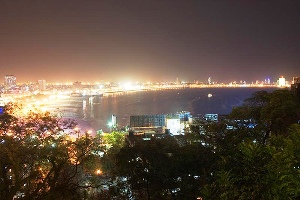 India will need to spend $2.2 trillion (Rs 97.35 lakh crore) on its cities by 2030 to meet the urban infrastructure demands, a report released by the McKinsey Global Institute said today.
India will need to spend $2.2 trillion (Rs 97.35 lakh crore) on its cities by 2030 to meet the urban infrastructure demands, a report released by the McKinsey Global Institute said today.
Nearly $1.2 trillion (Rs 53.1 lakh crore) is the capital expenditure needed to fund construction of infrastructure for water, sewage, transport and affordable housing among others, with 40 per cent of the estimated 1.47 trillion Indians living in urban areas by 2030.
As a percentage of the gross domestic product, urban infrastructure spending will have to rise from the current 0.5 per cent to 2 per cent to ensure that the services gaps are filled up across sectors.
"One trajectory would involve annual spending of around $30 billion through 2015, ratcheting up to $60 billion a year by 2020, and $90 billion annually by 2030," the report stated.
The good news is that nearly 80 per cent of the capex requirement can be generated internally, especially in case of tier-I and tier-II cities.
For instance, against a per capita requirement of $134, as much as $127 can be generated through four sources -- by monetising land ($58), debt and public-private partnership ($26) and through a 20 per cent share in the goods and services tax collected by the governments ($43).
Similarly, as against the required per capita operating expense of $116, almost all can be generated by way of user charges ($76) and property tax ($36).
The report has suggested that the gaps could be filled by the Centre and states through a systematic formula instead of ad hoc grants. For the smaller cities, an annual per capita grant of $20 has been suggested.
In line with rapid urbanisation, there will be at least five states in the country -- Tamil Nadu, Gujarat, Maharashtra, Karnataka and Punjab -- with a majority of the population living in urban areas.
To make the delivery of services more efficient, the report calls for implementation of the 74th Constitutional Amendment for devolution of powers to cities.
Besides, it has recommended that India should focus on nurturing specialist cities focused on sectors such as tourism, besides the development of 20-25 satellite townships in large metros.
The recommendations assume significance in view of the shift of the population from rural areas to cities, a trend seen with the development of the economy.
The study has estimated that by 2030, Indian cities could generate 70 per cent of the net new jobs created and drive four-fold increase in per capita income across the country.








